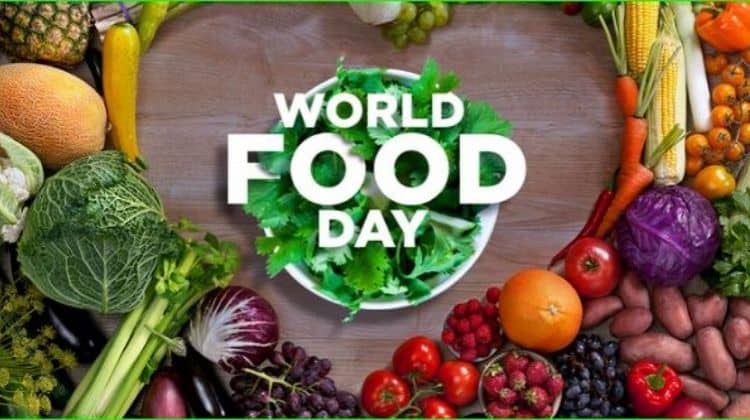Today, October 16, 2020 is the 75th Anniversary of World Food Day, marking the founding of FAO, with a view to looking towards the future we need to build together.
The theme for the anniversary is “Grow, nourish, sustain. Together. Our actions are our future.” As countries deal with the widespread effects of the COVID-19 pandemic, World Food Day 2020 highlights how food and agriculture are an essential part of the COVID-19 response. World Food Day 2020 calls for global cooperation and solidarity to help the most vulnerable to recover from the crisis.
AGRA’s perspective on Ghana
The COVID-19 pandemic struck Ghana at a time when the country was grappling with youth unemployment, effects of climate change, and 2.5million people (5% of the total population) who are food insecure. The measures aimed at tackling the health crisis by the Government within the context of the pandemic have had short, medium and long-term impacts on food and nutrition.
The severity of the measures on the agriculture sector was relatively low in comparison to industry and service sectors of the Ghanaian economy during the three-week lockdown and mobility restrictions. The apparent low impact of the pandemic on the agricultural sector could be attributed to the modest achievement of the Government’s popular and transformational agricultural flagship programme, Planting for Food and Jobs (PFJ).

The Alliance for a Green Revolution in Africa (AGRA), in 2017 under its State Capability Support investment portfolio, provided technical assistance to the Ministry of Food and Agriculture to design the five-year flagship programme aimed at increasing productivity and production of smallholder farmers in staple food crops and vegetables.
The programme has within three years facilitated the access of two million farmers to improved seeds, fertilizers, extension services and markets. Among the key results of the PFJ are: increased production volume of maize from 1.9 million tons in 2017 to 3.5million tons in 2019 making Ghana now self-sufficient in maize production; and locally milled rice production increased from 498,000 tons in 2017 to 665,000 tons in 2019, and with national consumption estimated at 1.3 million tons, Ghana is said to be at 51% self-sufficient in rice production.
The expectation of the government is to become fully self-sufficient by 2025.In spite of the numerous challenges confronting the sector, the COVID-19 pandemic presents a unique opportunity for Ghana to double down on its efforts to building a resilient agri-food system. Accelerating investments in the agriculture sector is imperative for economic recovery and growth during and after the COVID-19 pandemic. Building back better, will require an enabling regulatory business environment and public sector investments informed by evidence in infrastructure, research, and development to leverage private sector investment to drive sustainable food systems. These will require a concerted effort of Government, Development Partners, private sector mainly SMEs, and non-state actors to facilitate investments toward addressing systemic bottlenecks in the agriculture sector -agro-input distribution system, extension (digital), mechanization, value chain financing, structured market, regional trade, logistics and infrastructure-while ensuring mutual accountability.

As we celebrate World Food Day, we have to recognize the significant role of SMEs in driving agricultural transformation that benefits millions of smallholder farmers, meeting the food demand of the ever-growing urban population, and creating decent jobs for the teeming unemployed youth.
AGRA
Established in 2006, AGRA is an African-led, Africa-based and farmer-centered institution working to put smallholder farmers at the center of the continent’s growing economy by transforming their farming from a solitary struggle to survive to a business that thrives. Working in collaboration with our partners including African governments, researchers, development partners, the private sector and civil society AGRA’s work primarily focuses on smallholder farmers –men and women who typically cultivate staple crops on two hectares or less. In the new strategy for 2017-2021, AGRA is supporting 11 African countries and 30 million smallholder farm households (150 million individuals) to increase their incomes and improve their food security.
Forster Boateng, AGRA Regional Head for West Africa










